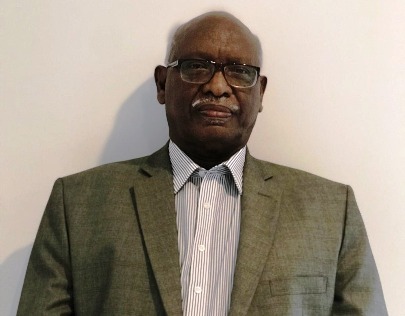Success Needs a New Idea, Mr. Perriello

By Zain Al-Abidin Saleh Abdel Rahman
In a press release from the U.S. Department of State, it was confirmed that the U.S. Special Envoy for Sudan, Tom Perriello, is visiting Riyadh, Cairo, and Ankara starting from September 8th to continue urgent efforts to end the ongoing war in Sudan and the resulting famine. Building on the recent success of the “Alliance Group for Enhancing Life-Saving and Peace in Sudan” initiative, the diplomatic priorities remain, including coordinating efforts to urge the Sudanese Armed Forces and the Rapid Support Forces to expand access to humanitarian aid in Sudan and ensure the protection of civilians.
If the agenda of the visit focuses on two points: expanding the scope of humanitarian aid to Sudan and ensuring the protection of civilians, doubts still linger despite Sudan’s agreement to allow aid. These doubts stem from the previous behavior of global organizations that used aid as a cover for delivering military supplies to the Sudan People’s Liberation Movement during the historical wars in southern Sudan. These doubts continue to haunt the Sudanese authorities unless there is a tool to eliminate them, especially since the U.S. is attempting to impose the UAE’s presence at any negotiations concerning the war in Sudan. The UAE is considered a continuous supporter of the militia with arms. Perriello, who initially sent threatening and alarming messages during his visits, failed to yield positive results to become a trustworthy mediator.
In most of the U.S. envoy’s speeches, he urges various parties fueling the conflict to support peace efforts. However, Perriello refuses to name these parties, especially the regional and non-regional ones, even though he is fully aware of them. These parties not only provide military support to the militia but also align with the militia’s stance by mobilizing regional states and even organizations. A mediator seeking to succeed must be trusted by all parties through communication and understanding the views of all Sudanese groups inside and outside Sudan. If his attention is focused on one side, this raises suspicions and questions his impartiality.
Perriello has claimed, in interviews with the “International Media Center in London, affiliated with the U.S. Department of State” or in conversations with Saad Al-Kabli and Al-Hurra TV, that he met with Sudanese groups and discussed the ongoing war in Sudan and how to find satisfactory solutions. This is far from the truth. Perriello came carrying the same file that U.S. Deputy Secretary of State “Molly Phee” and her team worked on, with follow-ups by former U.S. Ambassador John Godfrey. They pushed for the “framework agreement” idea, but unfortunately, they were behind its failure because they bet on a single group, ignoring the others. Perriello followed the same path as his predecessors, meeting the same group in Kenya, Kampala, Addis Ababa, and the UAE, and adopting their perspective while ignoring others. When he heard criticism of the path he was taking with one group, he realized he was trying to impose a failed vision. Hence, he had to go to Cairo to listen to the groups there, including some leaders from the National Congress Party.
Perriello says that the Sudanese people are more united and clearer than ever before. They want the war to end immediately and seek the restoration of civilian rule. I don’t think anyone in Sudan rejects the idea of ending the war. If the U.S. and Saudi Arabia were serious about implementing the Jeddah agreement signed on May 11, 2023, the majority of the people would have supported the negotiation process. However, the U.S. was not serious about pressuring the militia due to its relationship tied to the UAE’s agenda. Yet, there remains a critical question that the U.S. envoy or even the U.S. Department of State must answer: Is the U.S. following the UAE’s agenda, or is the UAE executing the U.S.’s agenda in the Sudanese war?
In one of his interviews, Perriello said there is no future for militias in Sudan, and he emphasized commitment to Sudan’s unity and the establishment of a professional, strong, and unified army so that the Sudanese people can determine their own future. What Perriello said were the slogans of the revolution that the “transitional period” failed to achieve. I don’t believe that the existence of militias will help the country’s security, political, and social stability. If Perriello insists on maintaining contacts in only one direction, he will fail. The Sudanese people are not represented by the small groups he relies on, listens to, and generalizes as the people’s opinion. Take these groups to Cairo and have them address the Sudanese people there to get a glimpse of the people’s opinion, which he refuses to hear by visiting different states in Sudan. Instead, he wants to impose a specific group under the name of democracy, which the U.S. practices outside its borders.
Perriello knows better than anyone that “democratic transition” requires a broad social base from the people to protect the outcomes of any dialogue contributing to democratic transition. However, the U.S. and the European Union want to impose a group on the Sudanese people, claiming they are the democrats. This is the same path that led the “framework agreement” to fail and plunge the country into war. A new approach is necessary. We pray for sound judgment.



